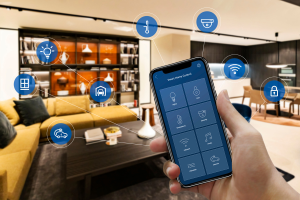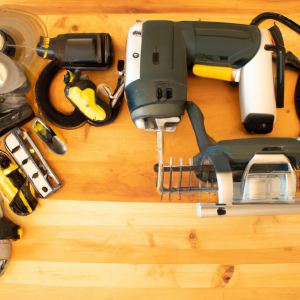Are you looking to create the ultimate home cinema experience? In this article, we will explore the debate between projectors and TVs to help you decide which is best for your space.
We’ll delve into factors such as image quality, screen size, portability, placement options, cost, value for money, viewing experience, and installation requirements.
By examining the pros and cons of both options, you’ll be equipped to make an informed decision and create a home cinema that truly belongs to you.
Key Takeaways
- Projectors offer a more immersive experience with larger screens.
- TVs have made advancements in image quality but still have limitations.
- Projectors offer portability and flexibility in placement options.
- TVs are more convenient with a complete package and better brightness in well-lit rooms.
Image Quality and Screen Size
When it comes to image quality and screen size, projectors offer a more immersive experience than TVs. Projectors have the advantage of being able to create larger images on a screen, allowing you to feel like you are part of the action. TVs, on the other hand, have a limited screen size, which can make it difficult to fully immerse yourself in the content.
In terms of image quality, projectors also have the upper hand. Most projectors offer excellent color accuracy, allowing you to see the true colors of the content you are watching. Additionally, projectors provide a wide range of resolution options, from standard definition to ultra-high definition, giving you the flexibility to choose the level of detail you prefer.
However, it’s worth noting that TVs have made significant advancements in recent years. Many high-end TVs now offer excellent image quality and can rival projectors in terms of color accuracy and resolution. Additionally, TVs have the advantage of being able to display content in bright rooms without losing image quality, whereas projectors often require a darkened environment for optimal performance.
In conclusion, when it comes to image quality and screen size, projectors provide a more immersive experience with excellent color accuracy and a wide range of resolution options. However, high-end TVs have made significant advancements and can now offer comparable image quality. Ultimately, the choice between projectors and TVs will depend on your personal preferences and the specific requirements of your home cinema setup.
Portability and Placement Options
For a more flexible setup, you can easily move and position projectors according to your preference. This portability is one of the major benefits of projectors over TVs when it comes to creating a home cinema experience. With a projector, you have the freedom to set up your viewing area wherever you want, whether it’s in the living room, bedroom, or even outdoors. You can project the image onto a blank wall, a screen, or even a sheet if you’re feeling creative. This flexibility allows you to create a truly immersive and customizable home cinema experience.
In addition to the portability benefits, optimal projector placement is also crucial for achieving the best image quality. Projectors need to be positioned at the right distance from the screen to ensure a sharp and clear image. The distance will depend on the projector’s throw ratio, which determines the size of the image based on the distance from the screen. It’s important to consider factors like room size, screen size, and seating position when determining the optimal projector placement.
Overall, projectors offer a level of portability and placement options that TVs simply cannot match. Being able to easily move and position projectors allows you to create a home cinema experience that is tailored to your preferences and can be enjoyed in various locations within your home.
Cost and Value for Money
To get the most bang for your buck, consider the cost and value of different options when deciding between projectors and TVs for your home cinema. Price comparison plays a crucial role in determining the right choice for you.
Projectors generally have a lower upfront cost compared to TVs, making them a more affordable option for those on a tight budget. However, it’s important to consider the long-term investment as well.
Here are a few key points to consider in terms of cost and value for money:
-
Projectors often require additional accessories such as screens and mounting equipment, which can add to the overall cost. TVs, on the other hand, come as a complete package.
-
Projectors tend to have lower maintenance costs, as they have fewer components that can malfunction or require replacement.
-
TVs usually have a longer lifespan compared to projectors, making them a better long-term investment.
-
Projectors offer a larger screen size potential, providing a more immersive viewing experience.
-
TVs generally have better image quality and brightness, especially in well-lit rooms.
By weighing these factors, you can determine which option provides the best cost and value for your home cinema setup. Remember, it’s important to consider both the upfront cost and the long-term investment potential when making your decision.
Viewing Experience and Immersion
Immerse yourself in a captivating viewing experience with a larger screen size potential. When it comes to creating a truly immersive home cinema experience, projectors have the upper hand over TVs. With projectors, you have the ability to achieve screen sizes that are much larger than what a TV can offer. This means that you can enjoy a more cinematic experience, feeling like you are truly a part of the action.
Additionally, projectors often come equipped with 3D technology, which can take your movie-watching experience to a whole new level. With the right content and glasses, you can enjoy movies that pop out of the screen, making you feel like you are right in the middle of the action.
Furthermore, projectors tend to have better audio quality compared to TVs. Many projectors come with built-in speakers that deliver immersive sound, enhancing the overall viewing experience. However, for the best audio experience, it is recommended to connect external speakers or a sound system to the projector.
In conclusion, if you are looking for a home cinema experience that truly immerses you in the content, a projector is the way to go. With their larger screen size potential, 3D technology, and superior audio quality, projectors offer a viewing experience that will leave you feeling captivated and engaged.
Installation and Setup Requirements
Setting up a projector in your home requires a few essential components and proper placement. To help you visualize the process, here are four key components and steps to consider:
-
Projector: Choose a high-quality projector that suits your needs, taking into account factors such as resolution, brightness, and contrast ratio.
-
Screen: Opt for a suitable screen size and material that complements your projector. Consider factors like ambient light and viewing distance to enhance your viewing experience.
-
Mounting: Ensure a sturdy and secure mounting system for your projector. This may involve wall or ceiling mounts, depending on your preference and room layout.
-
Connectivity: Connect your projector to a video source, such as a Blu-ray player or streaming device, using appropriate cables or wireless options.
The installation time and technical expertise required for setting up a projector can vary depending on your familiarity with audiovisual equipment. While it may seem daunting at first, there are numerous resources available online, as well as professional installers who can assist you if needed.
Remember, taking the time to properly set up your projector will greatly enhance your home cinema experience.
Frequently Asked Questions
What are the advantages and disadvantages of using a projector compared to a TV for a home cinema setup?
When comparing projectors to TVs for a home cinema setup, projectors offer advantages such as a larger screen size and immersive experience. However, they have disadvantages including lower brightness and potential image distortion.
Can projectors be used outdoors for backyard movie nights?
Yes, projectors can be used outdoors for backyard movie nights. To enhance your experience, consider using outdoor projector screens and choosing the best projectors for outdoor use.
How long do projector bulbs typically last and how much do they cost to replace?
Projector bulbs typically last around 2,000 to 4,000 hours, depending on usage and the specific model. The cost to replace a projector bulb can range from $50 to $500, depending on the brand and type.
Are there any specific room requirements or considerations for setting up a projector?
When setting up a projector, it’s important to consider the size of your room and the amount of ambient light present. A larger room may require a more powerful projector, while excessive light can diminish image quality.
Can projectors be connected to streaming devices or gaming consoles for a complete entertainment experience?
Yes, projectors can be connected to streaming devices and gaming consoles, allowing for a complete entertainment experience. While projectors are a great option for larger screens, some gamers prefer monitors for faster response times and higher refresh rates.
Conclusion
In conclusion, when determining whether projectors or TVs are best for your home cinema, it ultimately depends on your specific needs and preferences.
Projectors offer larger screen sizes and a more immersive viewing experience, but they require more careful placement and setup.
TVs, on the other hand, provide superior image quality and are more portable and convenient.
Consider factors such as cost, value for money, and installation requirements to make an informed decision.
Ultimately, both options have their advantages and it’s important to choose what suits your individual tastes and requirements.


